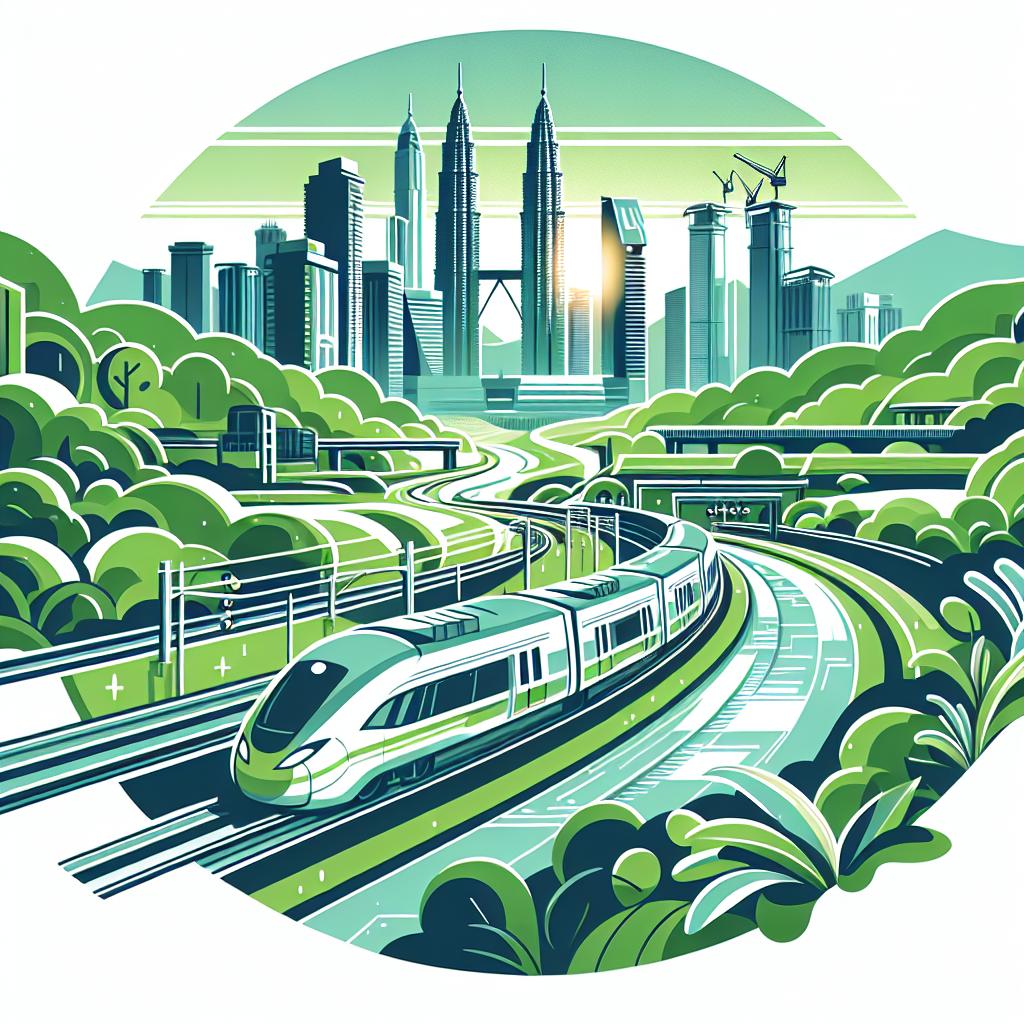-
Summary
- 2025-06-24 09:13

The landscape of Malaysia's infrastructure development has seen substantial advancements driven largely by collaborations with global entities like China Communications Construction Company (CCCC). Their involvement extends beyond just the East Coast Rail Link (ECRL); they contribute significantly to Malaysia's broader infrastructure framework. This partnership underscores the growing trend of international cooperation aimed at modernizing and expanding critical sectors within Malaysia.
A notable point of interest revolves around the proposed extension of the ECRL. Discussions indicate that the current endpoint at Kota Bharu could be extended further to reach Sungai Golok near the Malaysian-Thailand border. Such expansions reflect strategic foresight in connecting more regions efficiently and fostering economic growth along these corridors. Concurrently, the revival of Keretapi Tanah Melayu Berhad (KTMB) adds another layer of complexity and opportunity. Should KTMB undergo successful revitalization, it may play a crucial role in shaping policies related to future infrastructural projects, including those involving rail networks.
On another front, the shift towards sustainable transportation practices is gaining momentum, as evidenced by recent initiatives spearheaded by local companies. For instance, Grab Malaysia announced its plan to introduce an electric vehicle (EV) ride-hailing service starting from mid-2025 at Kuala Lumpur International Airport (KLIA). By incorporating a fleet of ten BYD M6 Multi-purpose Vehicles (MPVs), Grab aims to pioneer eco-friendly alternatives in urban mobility. This move not only aligns with global sustainability goals but also sets a precedent for other businesses to adopt greener technologies in their operations. As Malaysia continues to embrace both technological innovation and environmental consciousness, stakeholders can anticipate further integration of green solutions across various sectors, potentially leading to a transformative impact on the nation's long-term ecological footprint.
The focus lies on significant developments concerning Malaysia's infrastructure projects with contributions from China Communications Construction Company (CCCC). Beyond their involvement in the East Coast Rail Link (ECRL), CCCC plays an essential role in enhancing Malaysia’s overall infrastructure. Another pivotal aspect highlighted is the potential expansion plans for the ECRL. According to recent statements from CEOs, there exists consideration for extending the rail link’s endpoint from Kota Bharu to Sungai Golok at the Malaysian-Thailand border. This proposal comes alongside discussions about reviving Keretapi Tanah Melayu Berhad (KTMB) which might influence future decisions regarding such infrastructural extensions. Both these points underscore ongoing strategic planning and international collaboration in advancing Malaysia’s transportation network.
In June 2025, Grab Malaysia introduced an innovative electric vehicle (EV) ride-hailing service specifically catering to passengers departing from Kuala Lumpur International Airport (KLIA). This initiative marks the company's first deployment of an exclusive EV fleet. A total of ten BYD M6 Multi-purpose Vehicles (MPVs) have been incorporated into this new electric fleet, aiming to promote sustainable transportation options.
The launch event highlighted the importance of transitioning towards greener modes of transport, with Grab Malaysia taking significant steps in this direction by leveraging advanced technology in their services.